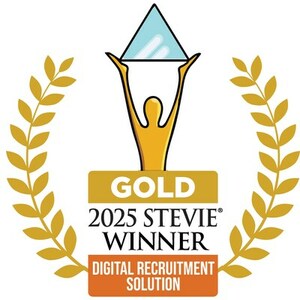It’s no secret that recruiting is a tough profession. It’s tough to get started in, it’s tough to be successful in, and it’s tough to stay successful in. Thousands of recruiters go out of business each and every year for one reason or another, and the industry plays no favorites. It doesn’t matter how many years you’ve been a recruiter, either. You could be in the business two years or you could be in it 20 years. The hammer could come down at any time, depending on what steps you’ve taken (if any) to avoid such a fate.
As a result, you have to be ready for anything that comes your way. The recruiting industry, like every other one in the marketplace, is constantly changing and evolving from year to year. Although the basics of the profession remain largely the same, there are many things that do not. And the things that do remain the same, such as standard methodologies and core practices, are continually updated, tweaked, and streamlined in the interest of efficiency and effectiveness. Somebody is always looking for a better way to do something, and they’re always looking to implement that better way. Notice that I didn’t say an easier way to do something, because "easier" is not always synonymous with "better." (The recruiters who try to do things the easy way are often the ones who find themselves out of business.)
This is why training is an ongoing process. It’s not just for rookie recruiters or for those who are starting out in the industry. It’s for everyone. And I’m pleased to relay an example involving a seasoned and successful recruiter that illustrates that point perfectly.
Continuous training = continuous success
Mark Suss is the president of Executive Placement Associates in Rockville, Md. Suss, who started in the recruiting industry in 1983, works primarily in the Retail industry and owns and manages a company of 11 employees. You would think that with 22 years in the business and such impressive business credentials that Suss would not feel the need to invest in any training. But that is definitely not the case. In fact, the main reason Suss has been so successful is that he has invested in a lot of training during his career, and he continues to invest in it.
During the first week of May, industry trainer Jeff Skrentny was in the Rockville area conducting a session sponsored by the Capital Area Staffing Association. Initially, Suss considered sending just a few of his employees to the training, but after looking over the agenda, he decided it would be better if he and his entire staff attended.
"As it turned out, there were a lot of new things," said Suss. "And there were some things presented that we’ve advocated for a long time, but we looked at them in a different light. A lot of it dealt with marketing and the power of email to get through to people. Jeff’s program was spectacular, it really was. The whole office found what he had to say very interesting, and they all benefited from the things that he presented."
According to Suss, he and his employees have already begun the process of implementing the ideas they received during Skrentny’s session. Essentially, Suss is providing a variety of value-added services to candidates and clients via email, a process that has already reaped benefits.
"Our new process includes pre-assessment search forms and reference referral forms," said Suss. "That way, every time we get a candidate, we can give them something back. We also give them industry articles that have something to do with the search process or with resume writing. We’ve created templates in our software for the different emails we want to send out."
The new email marketing techniques that Suss implemented have already started to pay dividends. His daughter, Ilissa, is the head of the company’s contract division. She recently sent a marketing email to a company’s hiring authority with the specific background of a candidate (with no contact information, of course). Also in the email was a list of the firm’s latest accomplishments, including some of the recent positions that it’s filled within the last few months.
"Not more than 20 minutes later, she got a response from that person," said Suss. "The next morning, we had a signed fee agreement. Then we had a phone interview three days later and a face-to-face interview three days after that. A few days later, the company made an offer, and it resulted in a pretty sizeable fee for us."
A pretty sizeable fee. It’s safe to say that if Suss had opted not to attend Skrentny’s training session at all, he wouldn’t have received that fee. The key to the whole sequence of events is that Suss didn’t dismiss the training or downplay its potential to impact his business. Instead, he chose to invest in it, and he received an almost immediate return on that investment. And it’s a good bet that he’s going to continue to receive a return on it.
"If we get a candidate, and they’re not right for a particular job, we ask them to send us a pre-search assessment and reference referral," said Suss. "We’ve done that 10 or 11 times already, and one candidate spawned nine other candidates. It’s saved us a tremendous amount of time and work. In the next part of the process, we ask the candidate for the names of between 15 and 25 companies they’d like to work for. Then we ask them to sign an exclusive candidate contract allowing us to market them to those companies. I’ve been pleasantly surprised at how well these things have worked out, and I’m optimistic that they’ll continue to work out in the long run."
Find your own golden nugget
Obviously, Suss is a big proponent of the value of training. As a recruiter and manager, he’s seen first-hand its benefits, both short-term and long-term. Not only that, he recognizes the importance of training for his employees.
"It amazes me how few people attend training sessions," said Suss. "For guys who have been around as long as I have, we should be going to these meetings. They’re a great way of motivating not only yourself, but your entire staff. How can you not give training to your staff?"
As a business owner, Suss appreciates ongoing training even more because less and less of his time is devoted to actual recruiting. Consequently, he wants to ensure that his employees are as knowledgeable as possible.
"With 11 people, I’ve become more of a manager and less of a producer," said Suss. "I can’t manage and know everything that my employees are thinking and doing, especially in our business. But if they’re going to training, if they’re seeing speakers, if they’re listening to tapes and CDs, I know that they’re doing the things they need to do."
Suss has been a very successful recruiter for a very long time, and ongoing training is one of the big reasons why. Certainly, the recruiting industry has undergone many changes since Suss started in the business back in 1983. (Imagine the world of recruiting without email, faxes, or cell phones). But with the help of ongoing training, Suss has adapted to those changes and has evolved right along with the industry.
"If you’re a doctor or dentist, you have to take continuing education courses," said Suss. "If you’re an accountant, you have to take a tax course every year because the tax codes change. Why should our business be any different? Training is the most important thing that anybody can do in this business."
"The most important thing that anybody can do in this business." Those words weren’t spoken by an industry trainer or by a wet-behind-the-ears rookie. They were spoken by a 22-year veteran of the recruiting industry, somebody who has experienced the ups and downs of the profession. What golden training nugget of information could you use to improve your business model? For Suss, it was a new way to market to candidates and clients, a way that has already resulted in a placement and will almost certainly result in more placements down the road. Because Suss recognized not only the value, but the necessity of ongoing training, his business continues to grow and continues to be successful in an ever-changing marketplace.
Maybe you’ve been investing in training all along. Or maybe you’ve put training on the backburner. Or perhaps you’ve been neglecting training all together. Whatever the case, you can always re-commit yourself to being the best you can be and to reaching your full potential. Because training is for everybody. Because, as Suss stated, training is "the most important thing."





